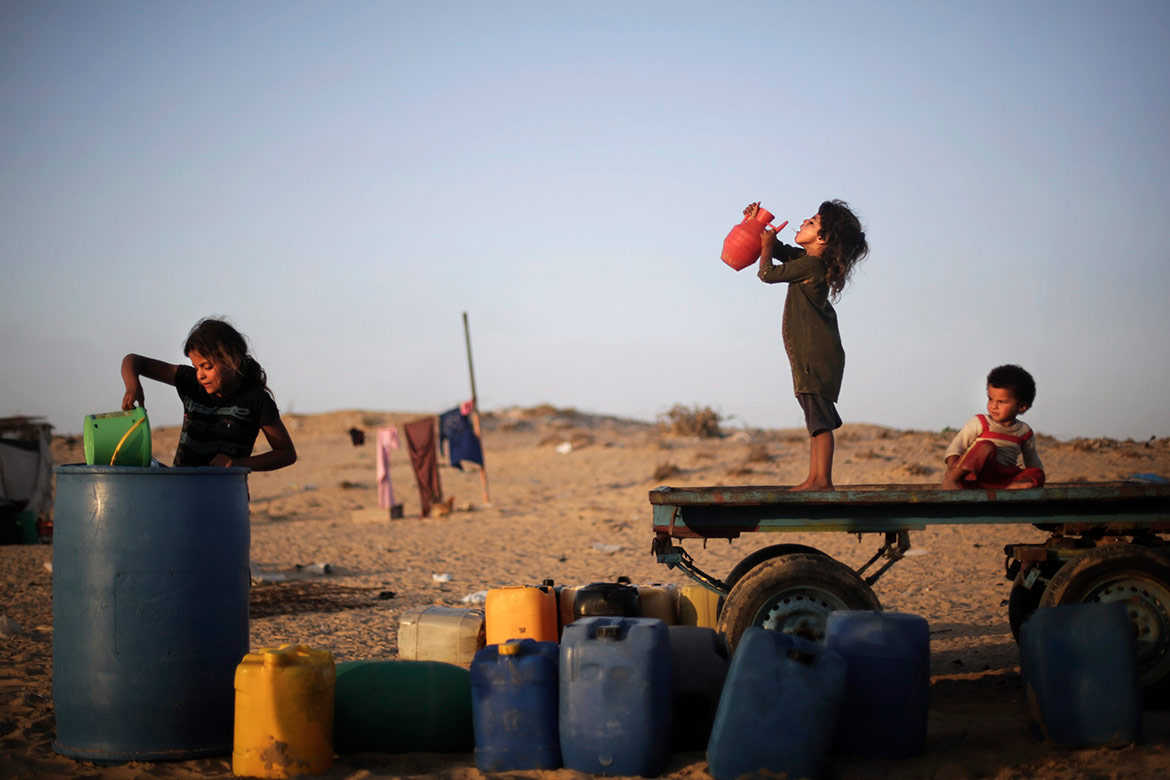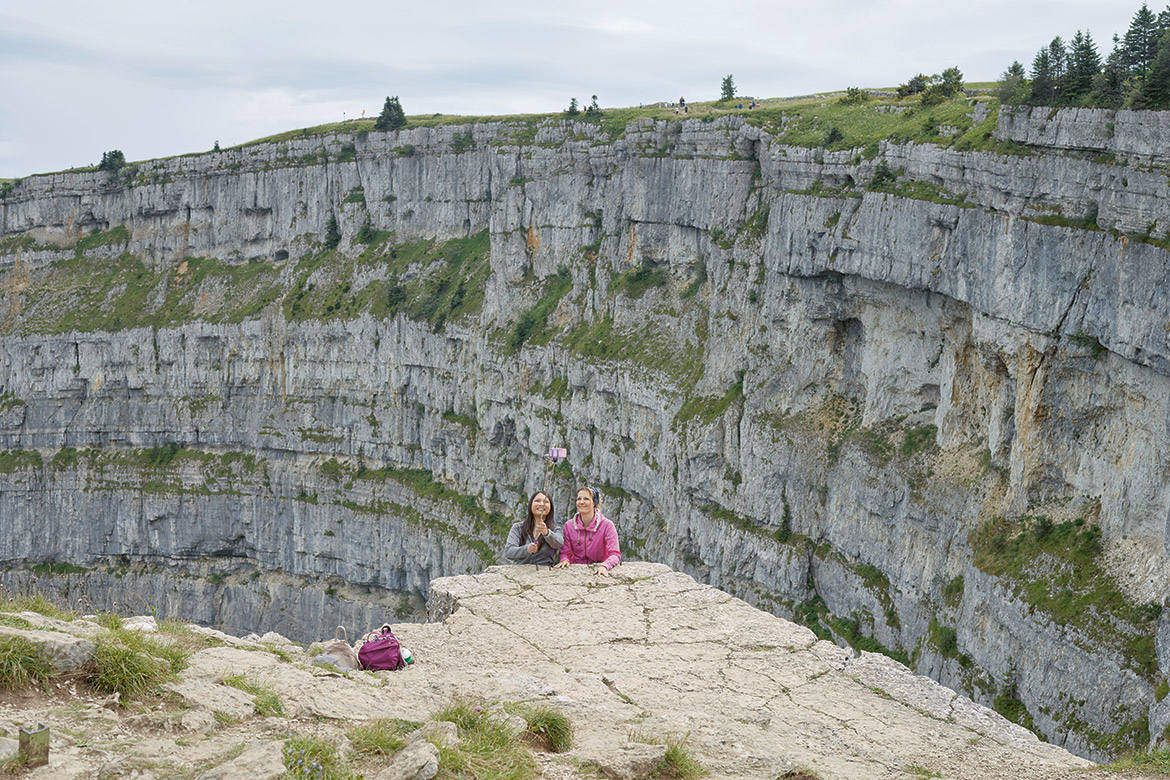Feature: Water bargaining
Editorial: Always check alternative possibilities!
In journalism, like in science, we should constantly adjust our opinions to stay in line with the latest findings, says Florian Fisch, joint Editor-in-Chief of Horizons.

Children drinking water in a poor neighbourhood of the city of Khan Yunis in the year 2013. This valuable resource might be used to exert political pressure, but it wasn’t the cause of the three wars that have since ravaged the Gaza Strip. | Photo: Keystone / Ali Ali
Water is already causing wars in our world – or at the very least, it will certainly do so at some point in the future. Of this, all five members of the editorial team of Horizons were convinced. Our plan for this issue of the magazine was thus to focus on how conflicts over water might be avoided and resolved. But when we began our preliminary research, it quickly became clear that our premise was a myth – albeit a pretty well-founded one. According to the BBC, it was back in 1985 that the then Egyptian Foreign Minister and later Secretary-General of the UN, Boutros Boutros-Ghali, declared: “The next war in the Middle East will be fought over water, not politics”.
So we adapted our Feature topic accordingly. Of course water plays a role in conflicts, and of course water scarcity is becoming an ever-bigger problem on account of population growth and climate change. Other UN Secretaries-General have said it, too. But our focus is now on how low-threshold conflicts around water can be resolved, and how water scarcity can be countered in the canton of Aargau, in Switzerland as a whole, and all around the world.
It was hardly a heroic endeavour to adapt what we believed on the basis of what we discovered through our research. We haven’t dedicated our careers to this topic, nor were any of our fundamental values affected by it to the extent that we would have had to alter them. But all the same, in journalism just like in science – and in life in general – it’s important to adjust your opinion from time to time so that you stay in line with the latest findings. Tania Lambrozo, a psychologist from Princeton University, put it elegantly in the blog ‘Edge.org’ in 2017: “The systematic evaluation of alternative possibilities is a hallmark of scientific thinking, but it isn’t restricted to science”.




